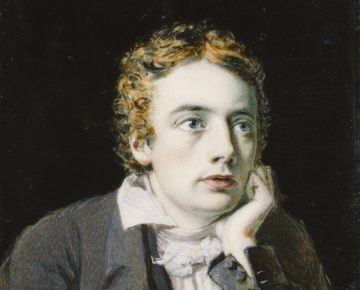Ardene Hegele at Public Books:
 Kerschen’s depiction of the on-the-ground historical conditions that produced the Romantics’ most radical poetry—Shelley’s “Epipsychidion” and “The Masque of Anarchy,” Byron’s Don Juan—is a major achievement. But the book also offers an appealingly intimate view into Keats’s more mundane realities. The convalescent poet is forced to reckon with his debts, both financial and emotional: his life in Italy is dependent on his friends’ charity, and he is pressured to honor his engagement to Fanny Brawne, back in London. The author’s research is impeccable: the fictional Keats’s traits are all supported by what manuscript evidence tells us about the poet’s character. Even so, his choices often come as a pleasant surprise.
Kerschen’s depiction of the on-the-ground historical conditions that produced the Romantics’ most radical poetry—Shelley’s “Epipsychidion” and “The Masque of Anarchy,” Byron’s Don Juan—is a major achievement. But the book also offers an appealingly intimate view into Keats’s more mundane realities. The convalescent poet is forced to reckon with his debts, both financial and emotional: his life in Italy is dependent on his friends’ charity, and he is pressured to honor his engagement to Fanny Brawne, back in London. The author’s research is impeccable: the fictional Keats’s traits are all supported by what manuscript evidence tells us about the poet’s character. Even so, his choices often come as a pleasant surprise.
The Warm South’s thought experiment—offering an alternative future for Keats and his circle—picks up some of the most pressing questions in Romanticist scholarship. It does so knowingly: the novel implicitly engages with squarely academic books such as Stanley Plumly’s Posthumous Keats, which treats the questions of Keats’s poetic afterlife and the shaping of his legacy.
more here.
